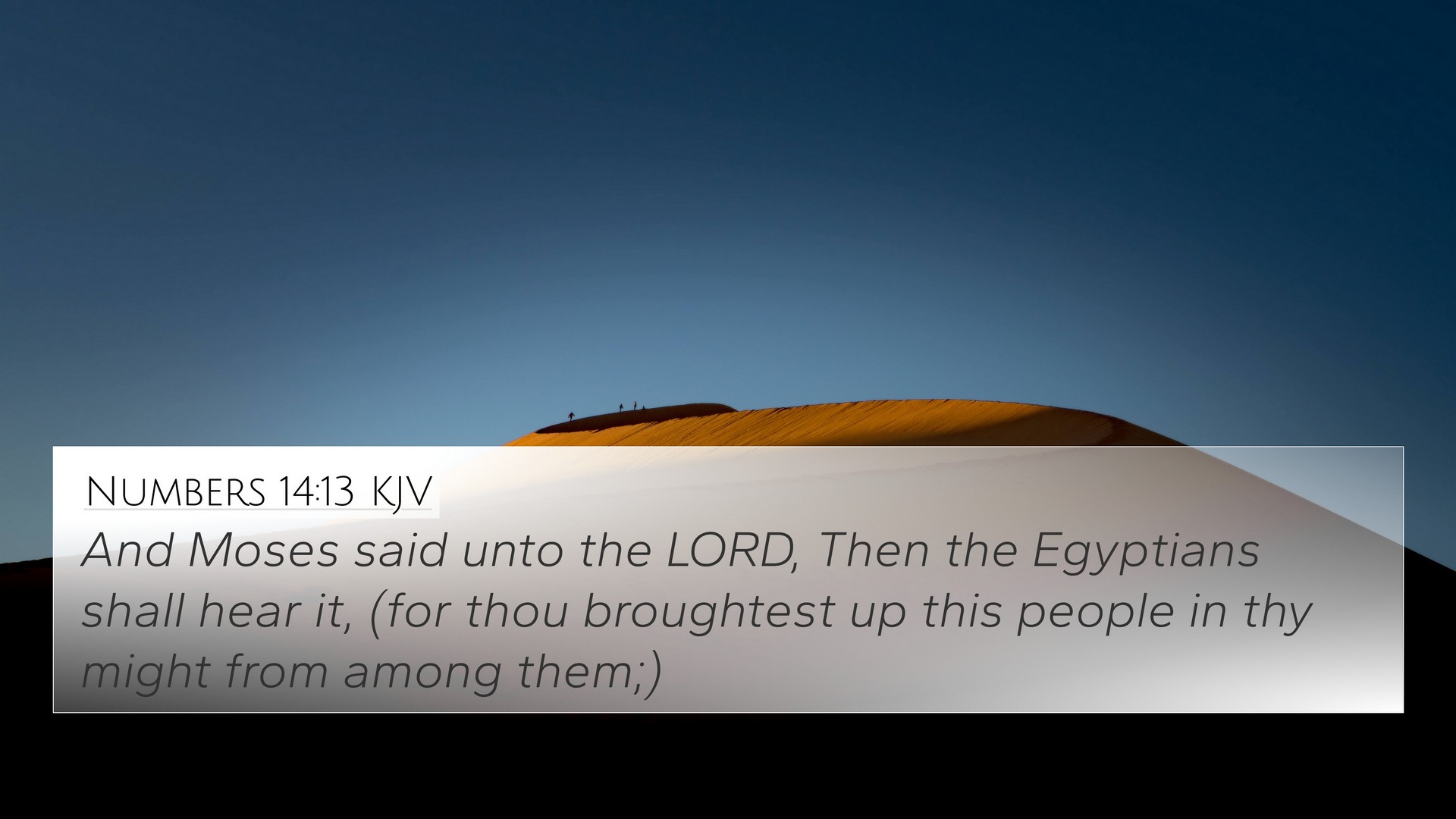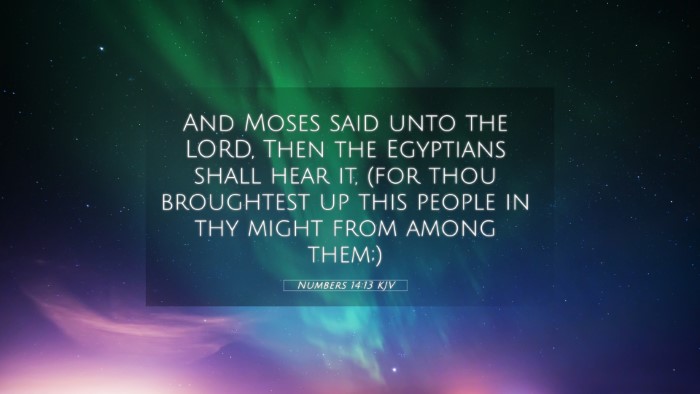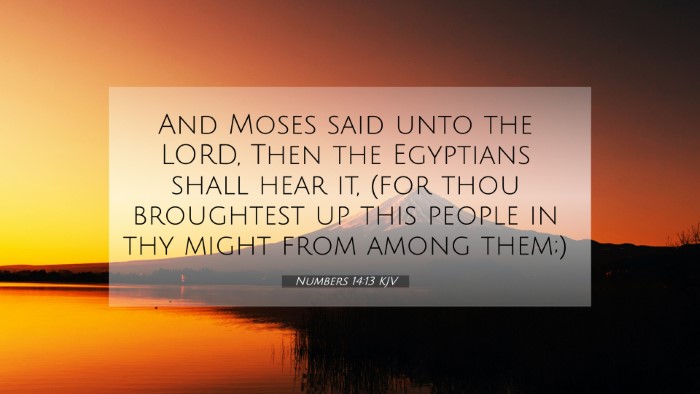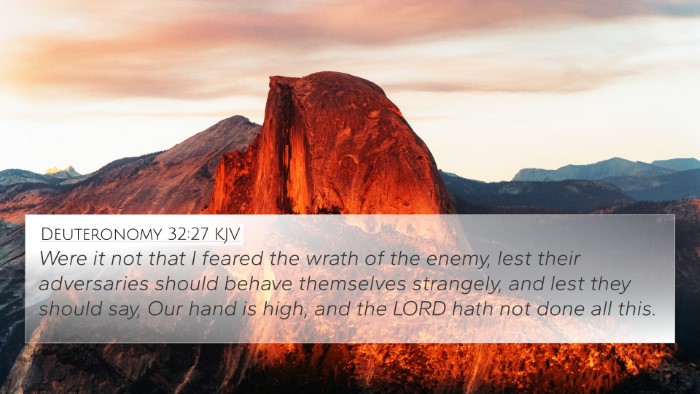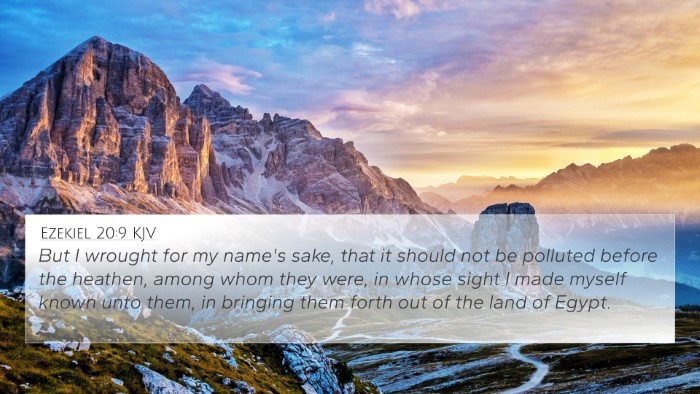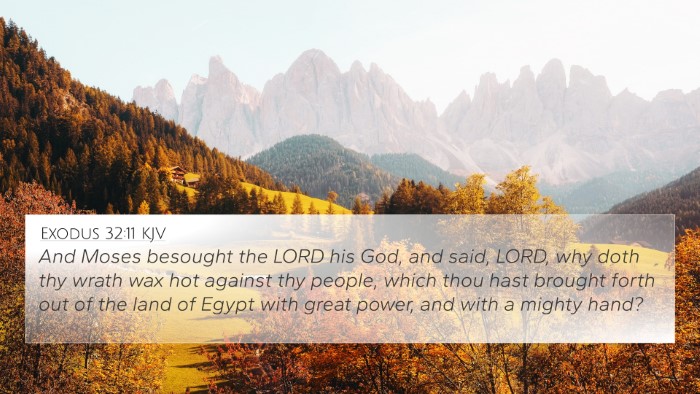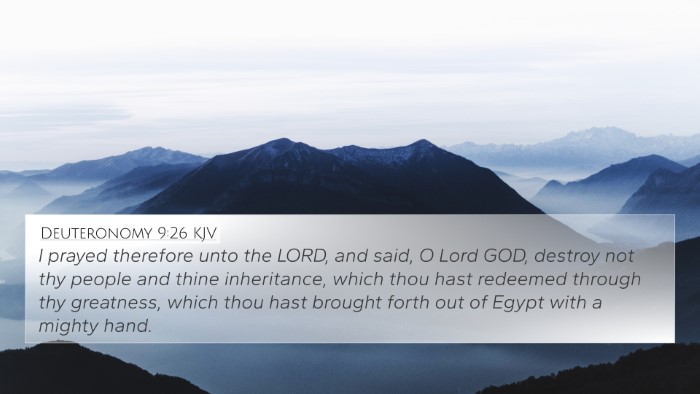Understanding Numbers 14:13
Numbers 14:13 states: "And Moses said unto the Lord, Then the Egyptians shall hear it, for thou broughtest up this people in thy might from among them." This verse comes from the heart of a narrative where Moses intercedes for the people of Israel in the aftermath of their rebellion against God.
Context and Significance
This passage takes place after the Israelite spies have returned from Canaan with a fearful report. The people are distraught and express a desire to return to Egypt. Moses' plea reveals profound insights into leadership, intercession, and the nature of God's mercy.
Moses' Intercession
Moses acts as a mediator between God and the Israelites. His concern centers around God's reputation among the Egyptians:
- Matthew Henry notes that Moses reasons with God, highlighting the consequences of God's actions and the implications for His name.
- Albert Barnes emphasizes that Moses appeals to God's glory and potential reproach among the nations, showing a prophetic understanding of God's broader mission.
- Adam Clarke points out that this moment illustrates the intimate relationship between Moses and God, reflecting Moses' commitment to his people's welfare and the honor of God.
Theological Themes
This verse introduces several theological themes that merit further exploration:
- Divine Reputation: The implications of God's actions on His reputation among the nations.
- Intercession: The work of a mediator pleading for mercy, which ultimately foreshadows the role of Christ.
- Redemptive History: God’s redemptive plans for His people and their significance in the narrative of salvation.
Links to Other Scriptures
This passage can be cross-referenced with several other biblical texts that enhance our understanding of its meaning:
- Exodus 32:11-14: Moses intercedes for Israel when they sin with the golden calf.
- Psalm 106:23: The psalmist reflects on Moses' intercession as a pivotal moment of mercy.
- Jeremiah 14:7: Together, the plea for mercy highlights the importance of intercession and God’s response to the prayers of His servants.
- Romans 8:34: This New Testament verse underscores the role of Christ as an intercessor.
- Hebrews 7:25: Further illustrates Jesus' everlasting intercession for believers.
- Isaiah 63:12: Discusses God's leading of His people and the potential for God’s name to be proclaimed among nations.
- Matthew 5:16: Encouragement that our good works reflect God's character, akin to Moses’ concern for God’s reputation.
Interpreting Contextual Connections
By examining these connections, we can better understand the overarching narrative of grace and judgement present in both the Old and New Testaments. Exploring the links between Moses' intercession and the intercessory work of Christ through:
- Identification of Themes: Understanding the consistent theme of God’s mercy and grace.
- Comparative Analysis: Analyzing the similarities and modern-day applications of intercession in the lives of believers.
Conclusion
Numbers 14:13 is rich in meaning and application. It invites readers to consider the implications of divine reputation and the essential role of intercession in the unfolding story of God's relationship with humanity. In studying such passages, we engage in a deeper dialogue across the scriptures, discovering the linked threads of God’s plan of redemption throughout biblical history.
Tools for Further Study
To enhance your personal study of this verse and others, consider utilizing:
- Bible Concordance: A tool for finding cross-references.
- Cross-Reference Bible Study Guides: To interpret themes across the scriptures.
- Bible Reference Resources: For detailed examinations of biblical texts.
- Comprehensive Bible Cross-Reference Materials: To explore thematic connections.
Finding Cross-References in the Bible
Understanding how to find cross-references enhances the study experience:
- Identify key themes or words in your chosen passage.
- Use a Bible cross-reference system to find related verses that illuminate the text.
- Engage in a comparative study of related verses for deeper insights.
- Utilize resources that provide Bible chain references to navigate scripture connections.
